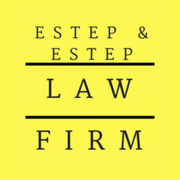What's the Difference Between Probate and Non-Probate?

If you own property at the time you pass away, it will be transferred to someone else. Depending on if you do or don’t establish a living will during your life, the assets might have to go through probate, or they may become non-probate property. Understanding the difference between the two classifications of the property may help you make wise estate planning decisions.
Probate Assets
Probate is the legal process of identifying and distributing a deceased person’s assets, called their estate. Generally, items you hold as the sole owner are subject to probate for distribution by the court as your estate. The property goes either to beneficiaries you name in your will or by state intestacy laws if you pass away intestate, without a will. This property can include real estate, motor vehicles, cash, jewelry, and personal property.
Non-Probate Assets
 Non-probate property includes assets you hold in joint title with one or more people or for which you have named beneficiaries. This property category typically includes life insurance policies, vehicles under joint ownership, financial accounts, business interests, and real estate.
Non-probate property includes assets you hold in joint title with one or more people or for which you have named beneficiaries. This property category typically includes life insurance policies, vehicles under joint ownership, financial accounts, business interests, and real estate.
Ways to Avoid Probate
One way of converting probate assets into non-probate property is by creating a trust and placing items in it. Trusts can hold real, personal, and digital property, including stocks, cryptocurrency, and land. Unlike property passed on by a will, the assets pass to the beneficiaries without going through probate, and their identities are not available in public records.
Another method of establishing non-probate status is by adding an individual’s name to the titles of your real property as a joint owner with right of survivorship, or name someone as co-owner of your motor vehicle. That person becomes the sole owner automatically upon your passing. An experienced estate planning attorney will explain the legal, financial, and practical impact of choices such as these and help you accomplish your goals.
For professional guidance in creating probate and non-probate assets, turn to Estep & Estep. Tazewell, TN, area residents have relied on sound legal advice and representation from these estate planning attorneys since 1953. Whether you must decide how to hold title to real estate or want to create a trust, these lawyers will help you accomplish your goals. To learn more about their services, visit the website, and call (423) 626-3525 to arrange for an initial consultation.
About the Business
Have a question? Ask the experts!
Send your question

